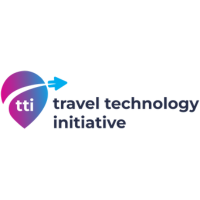AI and Automation: The Future of Travel Technology
)
- Published: 08 Feb 2025
- By: Jonathan Carter-Chapman, Marketing Director, Northstar Travel Group
- Topics: AI in Travel, Travel Automation, Customer Experience, Booking Systems, Future of Travel Technology
- Read Time: 8 minutes
Quick Summary
Artificial Intelligence (AI) and automation are revolutionising the tourism industry in the UK, enhancing operational efficiency and transforming customer experiences. From personalising travel planning based on individual preferences to optimising booking processes, AI travel technology is shaping a smarter, more responsive future for travel.
Despite challenges such as implementation costs and data privacy concerns, the integration of AI into travel technology is accelerating. Significant investments are flowing into booking systems, customer service solutions, and innovations like dynamic pricing models. Prime examples include AI-powered chatbots, automated booking platforms, and machine learning algorithms that analyse user behavior to improve services.
Industry leaders, including Glenn Fogel of Booking Holdings, emphasise AI's pivotal role in shaping the future of travel, noting that maintaining a human touch alongside technological advancements will be crucial.
REGISTRATION NOW LIVE Book Your Stand
Travel Tech Show | 25-26 June 2025 | ExCeL London
Introduction
The UK travel industry is undergoing a significant transformation, driven by the rapid adoption of Artificial Intelligence (AI) and automation technologies. These advancements are reshaping how travel agencies, tour operators, and other travel partners operate. They are enhancing customer experiences, streamlining complex processes, and setting new standards for service quality. This article explores the key trends, innovations, and challenges defining the future of AI in travel.
The surge of AI and automation in travel
AI and automation have become integral to the travel technology stack. In 2023, the UK travel market experienced remarkable growth, with gross bookings increasing by 19%, driven primarily by stronger online booking processes and mobile transactions. This surge underscores the industry's commitment to leveraging AI-driven travel planning tools that analyse market trends and individual preferences to deliver more tailored experiences.
Glenn Fogel, CEO of Booking Holdings, sums it up:
Enhancing customer experience through AI
Personalisation stands at the forefront of AI applications in travel. By harnessing machine learning to interpret user behavior, companies can create highly individualised recommendations that significantly boost customer satisfaction. AI travel technology enables platforms to offer bespoke travel planning, from suggesting destinations to advising on local experiences.
Tools such as AI-driven chatbots and AI assistants provide real-time support, managing queries and facilitating bookings seamlessly. These innovations do not merely replace human agents; instead, they complement them, allowing for smoother and more efficient interactions that still feel personal.
One particularly exciting development is the integration of facial recognition into airports and hotels, accelerating check-ins and enhancing security. Such innovations highlight how AI is blending convenience with improved customer experiences across the travel sector.
Operational efficiency and automation
Automation is streamlining a wide range of operational aspects within the tourism industry. Processes such as payment handling, customer communications, booking management, and dynamic pricing adjustments are increasingly managed by intelligent systems.
AI-powered platforms combine advanced customer relationship management (CRM), automated operational tasks, and insightful analytics, offering travel agencies and operators a comprehensive toolkit to improve conversion rates and boost profitability. By analysing prime examples of successful AI adoption, businesses can better understand how to maximise operational efficiency while keeping services aligned with changing customer expectations.
Furthermore, Generative AI is being leveraged to create dynamic travel itineraries, marketing content, and even personalised booking confirmations, saving valuable time and resources.
Challenges in implementing AI solutions
Despite its many advantages, integrating AI into existing travel systems presents notable hurdles. Over a third of travel technology buyers cite implementation time, high costs, and balancing budgets as major concerns.
Data privacy remains a critical issue, especially as AI systems rely on collecting and analysing large volumes of personal information. Companies must carefully navigate regulatory requirements to maintain customer trust.
Vicki Miller, Director of VisitScotland, highlights:
Balancing innovation with ethical data management practices will be a defining challenge for travel companies moving forward.
Innovations driving the industry forward
The travel industry continues to push boundaries, with AI-driven innovations offering exciting prospects for the future. Travel partners are increasingly adopting AI-powered platforms that combine booking processes, customer service automation, and powerful analytics to deliver seamless, highly responsive experiences.
For instance, dynamic pricing models fuelled by AI adjust travel prices in real-time based on market trends, user behavior, and demand levels, helping companies remain competitive while meeting customers' budget expectations.
Machine learning is also enabling predictive analytics that support more efficient travel planning, while facial recognition technologies are reducing friction at key travel touchpoints.
As the capabilities of Generative AI evolve, expect even more sophisticated applications that further blur the lines between automated and personalised services, strengthening the bond between technology and the human agents who deliver outstanding customer experiences.
Final thoughts
The integration of AI and automation is undeniably reshaping the travel landscape. From dynamic pricing and personalised travel planning to more efficient booking processes and advanced customer service tools, AI travel technology is opening new frontiers for the tourism industry.
While challenges around data privacy, implementation time, and maintaining the human touch persist, ongoing investments in innovative solutions suggest a promising future. Travel agencies, operators, and partners that embrace AI-driven strategies while safeguarding the customer relationship will be best positioned to thrive.
As technology and human expertise work hand in hand, the future of travel looks not only smarter but also more human-centred than ever before.
Further reading
- Phocuswright. (2023). UK Travel Market Report 2023-2027. Retrieved from Phocuswright
- Lexology. (2024). How to Manage the AI Transformation Journey in the Travel Industry. Retrieved from Lexology
- EPAM. (2024). Artificial Intelligence in Tourism in 2024. Retrieved from EPAM
- Mize. (2023). 6 Examples of How AI is Used in the Travel Industry. Retrieved from Mize
- The Times. (2024). AI Could Hold the Key to Beating Tourist Overcrowding. Retrieved from The Times

)
)
)
)
)
)
)
)
)
)
)
)
)
)
)
)
)
)
)





